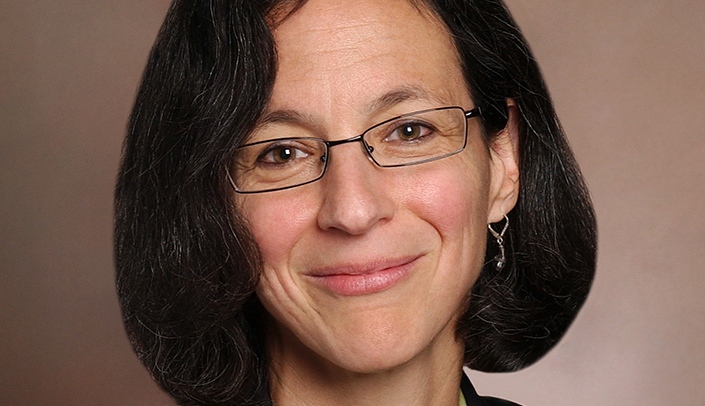More than ever before, medical schools are openly addressing the high rate of physician suicide and are raising awareness of the issue and providing the mental health assistance and other support to address the problem.
The numbers are staggering. It is estimated that there are about 400 physician suicides in the U.S. annually – the equivalent of three of our medical school classes.
On December 5th, we are hosting two free screenings of the documentary "Do No Harm," produced and directed by Emmy Award-winning filmmaker Robyn Symon. The film follows four individuals touched by physician suicide and also explores the complex health care system that impacts how physicians practice medicine and the environment for doctors in training.
The film also focuses on proposed solutions, including legislative reform, ending the stigma surrounding mental health treatment, and shining a light at the other end of the tunnel for suicidal doctors.
It is a film that can be controversial at times as it tackles some of the tough issues surrounding the training of resident physicians, such as long work hours, sleep deprivation, patient safety, and dealing with the stress that comes with making life-or-death decisions.
I want to encourage all our medical students, residents, fellows and physicians to carve out the time to view this documentary. See sidebar for complete details.
On the personnel front, we are excited to have recruited Dr. Aviva Abosch from the University of Colorado to be chair of our newly established Department of Neurosurgery.
Dr. Abosch brings to UNMC a strong and successful background in academic medicine, having spent three years at Emory University, eight years at the University of Minnesota, and five years at Colorado.
With the population aging, the need for neurosurgery is increasing. The population of Nebraskans aged 65 and over is projected to grow by 75 percent from 2010 -2030. This aging population means more people will be at a higher risk for neurological problems such as stroke, degenerative spine disease, tumors, and neurodegenerative disorders such as Parkinson’s disease.
In transitioning neurosurgery to be a separate department from its current status as a division in the department of surgery, UNMC will join the majority of other academic medical centers in the country in which 98 of 110 (89 percent) neurosurgery programs are departments. Seven of the eight neurosurgery programs in the Midwest region with established residency programs are departments.
Dr. Abosch, who will begin on or before July 1, has all of the tools needed to nurture and grow the new department. She is thrilled to be given this opportunity and she can’t wait to start setting the vision for neurosurgery at UNMC, Nebraska Medicine, and Children’s Hospital & Medical Center for the next decade or more.
She hopes to recruit a number of new faculty to the department to help ease the huge clinical burden on our existing neurosurgery faculty. Her top priority will be recruitment of spine surgeons, as well as bolstering our expertise in tumor and skull-based neurosurgery. She also will add pediatric neurosurgeons as part of our collaboration with Children’s.
I want to express my appreciation to Dr. Ken Follett for his leadership of the neurosurgery division for more than a decade, and I’m pleased that he will remain an active member of the faculty after Dr. Abosch’s arrival.
Finally, during this Thanksgiving and holiday season, I want to offer my appreciation to everyone in the College of Medicine for the outstanding work you do. We have a great team, and I can’t thank you enough for all your efforts. I hope you enjoy the holiday festivities and that you get to spend some time with your loved ones.
A message from the dean
- Written by Tom O'Connor
- Published Nov 28, 2018

Aviva Abosch, MD, PhD, the new chair of the UNMC Department of Neurosurgery, is expected to start around July 1.
'Do No Harm' documentary on Dec. 5
The noon session will be in the Truhlsen Events Center on the first floor of the Sorrell Center. It is an abbreviated version of the documentary that is geared to medical students. Lunch will be provided.
The second session will be in the Durham Research Center Auditorium. Dinner will be provided at 5 p.m. followed by the full documentary from 5:30 to 6:50 p.m. It is open to all physicians and medical staff. A panel discussion will follow.
To ensure an adequate food count, please register by Nov. 30 by going to this website. If you have questions, email CarolDrakeMD@gmail.com or jordan.bowman@unmc.edu. You can view the film's trailer here.
In addition, there are two other upcoming wellness events that people should put on their radar screens.
On Feb. 15, UNMC will hold its fourth annual Elevating the Conversation Symposium from 8 a.m. to 4 p.m. at the Scott Conference Center, 6450 Pine St. This year's symposium is titled, "The Ecology of Wellbeing in the Health Professions," and it is open to UNMC, Nebraska Medicine and UNO faculty and staff.
On Feb. 16, UNO will host a TedX event on resilience.